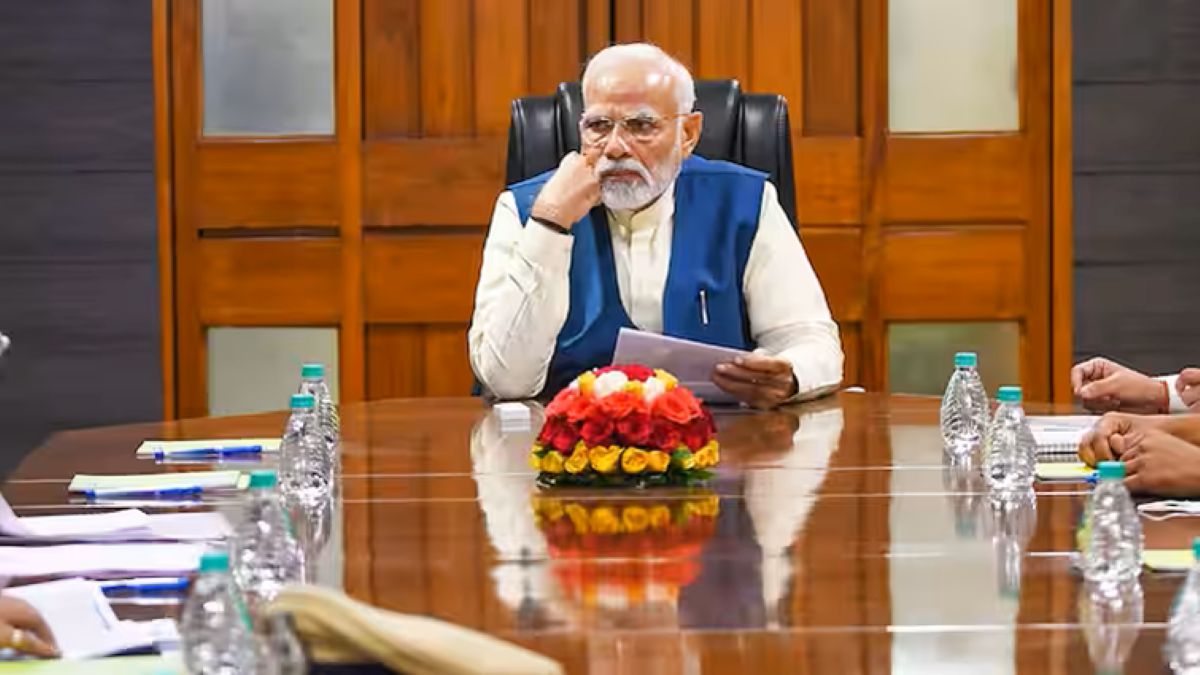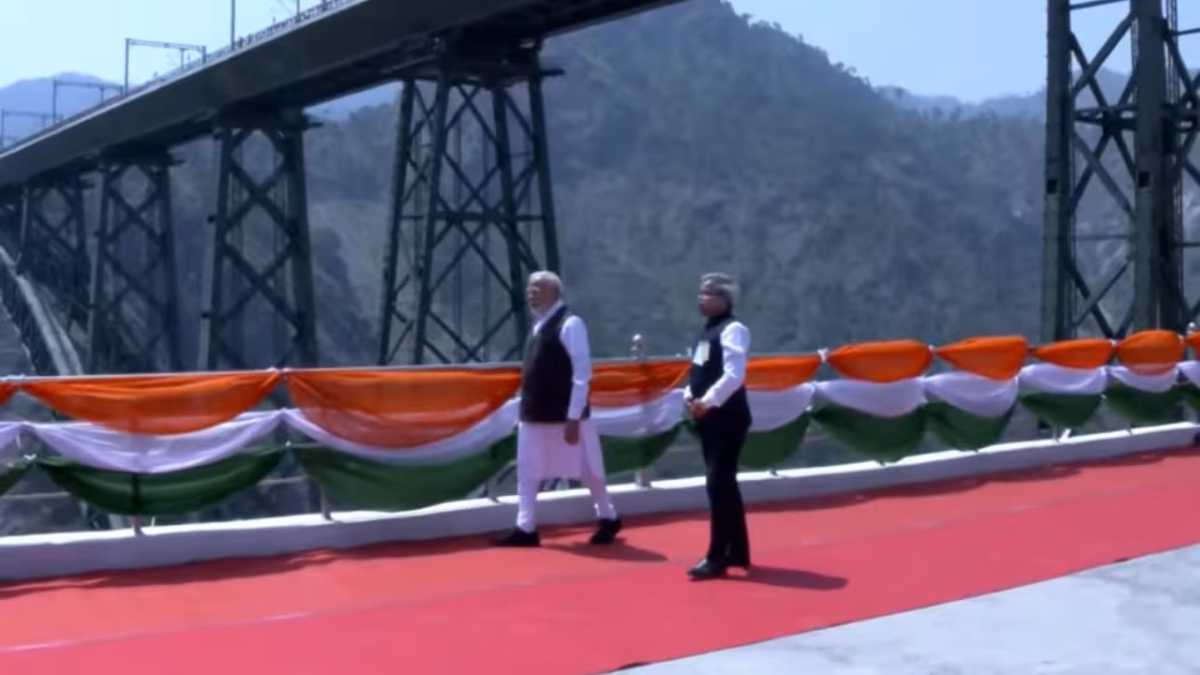
In a politically and strategically significant move, Prime Minister Narendra Modi is set to chair a high-level meeting of the Union Council of Ministers. This will be the first such gathering after the decisive Operation Sindoor, a military offensive launched in response to the deadly Pahalgam terror attack.
As Modi 3.0 marks its first anniversary in office, this meeting signals both a review of India’s recent counter-terrorism efforts and a strategic planning session for the year ahead. Here’s a deep dive into what this meeting could mean for India’s national security, governance priorities, and the BJP’s political roadmap.
What is Operation Sindoor?
Operation Sindoor was a direct and strong military response to the Pahalgam terror attack on April 22, 2025, in which 26 Indian tourists lost their lives. The attack, allegedly orchestrated by terror outfits operating from Pakistan-occupied Kashmir (PoK), sparked nationwide outrage and an immediate reaction from the Indian defense establishment.
Launched within days of the attack, Operation Sindoor targeted multiple terror camps across PoK and Pakistan. Key military infrastructure, including air bases and logistic hubs, were reportedly hit. The government and military sources emphasized zero civilian casualties, showcasing India’s precision strike capability and intelligence-led warfare.
This operation is being heralded as a turning point in India’s counter-terrorism policy — one that draws a firm red line for hostile neighbors.
Read Also: India and Pakistan Agree to Ceasefire: A New Dawn for Peace on LoC
Significance of the June 4 Council of Ministers Meeting
This meeting isn’t just another routine government affair. Scheduled for June 4, 2025, it coincides with the first anniversary of the Modi 3.0 administration. The agenda is expected to focus heavily on:
-
Reviewing Operation Sindoor’s outcomes
-
Setting security and governance priorities
-
Preparing for the 2025-2026 legislative and economic roadmap
-
Strategizing for global diplomatic engagements
-
Aligning ministries with Modi’s vision of ‘Viksit Bharat 2047’
Sources close to the PMO suggest that National Security Advisor Ajit Doval, Defence Minister Rajnath Singh, and Home Minister Amit Shah will present detailed reports during the meeting.
BJP’s Strategy: Turning Military Success Into Political Strength
The Bharatiya Janata Party (BJP) has already begun to shape a narrative around Operation Sindoor, positioning it as proof of PM Modi’s decisive leadership and national security focus. The timing of this Council meeting suggests a calculated move to reinforce that image, especially with major state elections and policy deadlines approaching.
Expectations are that PM Modi will:
-
Direct ministers to highlight the success of Operation Sindoor during public outreach programs
-
Instruct ministries to scale up citizen-centric projects like Ayushman Bharat, Jal Jeevan Mission, and Digital India
-
Push for international diplomatic recognition of India’s right to self-defense against cross-border terror
Read Also: Operation Sindoor: PM Modi’s Strong Warning to Pakistan as Tensions Escalate
Modi 3.0’s First Year in Review
With a year under its belt, the third term of the Modi government has already introduced and accelerated several policies:
-
Vishwakarma Yojana to empower traditional craftsmen and artisans
-
National Quantum Mission to boost India’s position in tech innovation
-
Continued infrastructure investment under Gati Shakti
-
Aggressive stance on terror through operations like Sindoor
The June 4 meeting will likely feature a performance review of key ministries, with special attention to internal security, economic reforms, and diplomatic relations.
Internal Security: A Renewed Focus
The brutality of the Pahalgam terror attack triggered not just grief but also a renewed sense of urgency in addressing internal and border security. Operation Sindoor has been India’s most assertive cross-border action since the 2019 Balakot airstrikes.
The Council of Ministers is expected to:
-
Evaluate intelligence coordination between central and state agencies
-
Approve budgetary enhancements for the armed forces and paramilitary
-
Finalize new cyber and space warfare protocols
Moreover, the government may announce a National Counter-Terror Doctrine, detailing India’s defensive and offensive strategies in the new geopolitical order.
Read Aslo: India-Pakistan Tensions Rise: Concerns Are Raised by Failed Drone and Missile Attacks
Public Sentiment and Messaging
Operation Sindoor has significantly boosted public confidence in the Modi government’s ability to respond firmly to threats. Public sentiment, as reflected on social media and news panels, largely supports a strong military doctrine.
The Council meeting will also aim to:
-
Align government communication strategies across ministries
-
Train spokespersons to convey unified messages
-
Address misinformation from foreign media and hostile nations
The BJP is expected to roll out a nationwide campaign titled “Secure India, Strong India,” showcasing both development and defense milestones.
What’s Next After the Meeting?
Following the meeting, several key outcomes are anticipated:
1. A Comprehensive White Paper on Operation Sindoor
This may be released to inform citizens and allies about the scale and success of the operation, and why it was necessary.
2. New Cabinet Directives
Ministers will likely receive specific instructions aligned with 10-year strategic goals under Vision 2047.
3. Policy Announcements
Announcements may include new defense deals, drone modernization programs, and increased support for veterans and soldiers’ families.
Opposition Response
While the BJP has praised Operation Sindoor as a national victory, opposition leaders like Rahul Gandhi and Arvind Kejriwal have questioned the transparency and strategic prudence of the operation. However, their voices have largely been drowned by popular support for the government’s tough stance.
It remains to be seen whether this Council meeting will also be used to neutralize criticism and assert the government’s strategic narrative in Parliament and public discourse.
Conclusion
The June 4 Council of Ministers meeting is more than a formality — it’s a symbolic and strategic summit that sets the tone for India’s security doctrine, governance priorities, and political direction in the years ahead.
As the Modi government steps into its second year of the third term, it aims to balance economic growth, social welfare, and national security — with Operation Sindoor becoming a defining marker of its legacy.
Stay tuned for live updates, official statements, and expert analysis on the outcomes of this crucial meeting.







